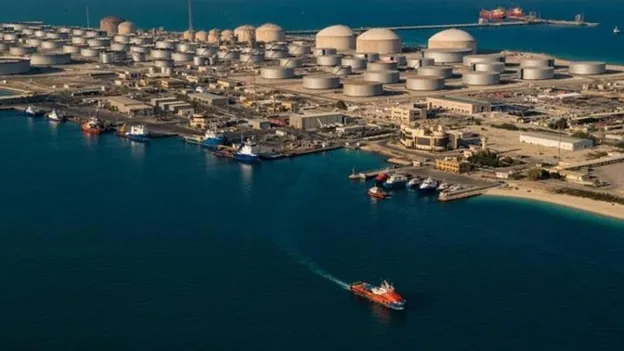
Scientists Warn: Ports at Risk Worldwide Due to Rising Sea Levels

worldwide - Recent studies reveal that 13 major ports, which handle the majority of global oil exports, are under threat of submersion due to rising sea levels.
According to the latest data, 13 ports most frequently used for oil exports are facing a significant risk of submersion. Analyses indicate that these ports, crucial for global oil trade, will be underwater as a result of rising sea levels. The inevitable rise in sea levels due to global warming and melting ice is projected to occur by the year 2070.
The International Cryosphere Climate Initiative (ICCI) has released analysis reports on the climate crisis. The ICCI's assessments highlight that the escalating sea levels caused by global warming will lead to the submersion of the world's major oil ports.
Researchers have pointed out that ports in Saudi Arabia such as Ras Tanura and Yanbu are particularly vulnerable. Both ports, operated by the Saudi state oil company Aramco, handle 98% of the country's oil exports.
Other ports included in the analysis are Houston and Galveston in Texas, USA, along with Fujairah and Jebel Ali in the UAE, Dalian in China, as well as Shanghai and Ningbo-Zhousan, Singapore, and ports in the Netherlands.
Data published by the ICCI indicates that a 1-meter rise in sea levels within the century is inevitable if high emission levels are not reduced, potentially occurring by 2070 due to ice melting. If the melt in ice caps cannot be halted, sea levels may reach 3 meters in a millennium.
Scientists find it ironic that ports facilitating fossil fuel shipments are at risk due to the same fuels causing global warming. They emphasize that transitioning to renewable energy to reduce emissions will mitigate global warming and provide more reliable energy sources.
ICCI director Pam Pearson stated, "It is ironic that ports for oil tankers are facing the threat of sea level rise caused by fossil fuel usage." She further mentioned that governments and companies often overlook this threat due to short-term interests.
James Kirkham, a chief advisor at ICCI, emphasized that refusing to turn off the oil taps equates to actively contributing to rising sea levels. The acceleration of ice melt and ocean expansion has doubled the rate of sea-level rise over the past 30 years.
Kirkham warned, "Unless leaders put in twice as much effort to move away from fossil fuels, the dreadful consequences of rising sea levels will worsen. Countries taking action will also feel the impact on their coastal areas." The projected rise in sea levels is expected to be one of the most dangerous long-term effects of global warming, reshaping the world map.


Leave a comment